Marine Life & Conservation
A Commitment As Deep As the Caribbean Sea: Sandals® Resorts and Beaches® Resorts Reach New Milestone in Sustainable Scuba Diving Practices
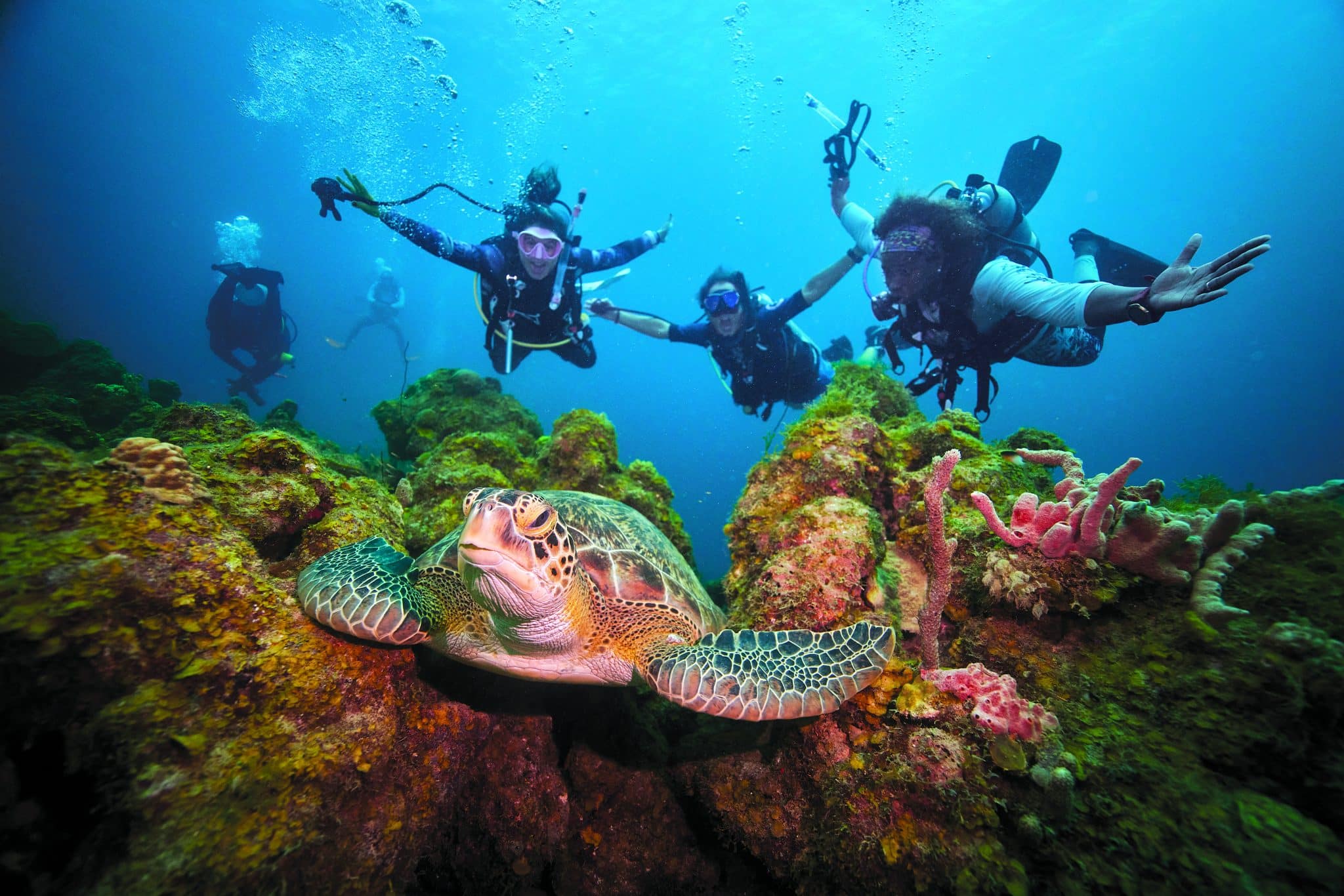
As long-standing partners immersing travelers under the colorful depths of the Caribbean Sea with a sustainable-first approach, today – together with PADI – Sandals Resorts and Beaches Resorts celebrate their newly obtained Green Fins digital membership. This coveted milestone marks the first resort company to adopt this conservation management approach across the entirety of its growing portfolio across eight Caribbean islands and counting.
Implemented internationally by The Reef-World Foundation in partnership with the UN Environment Programme, the Green Fins program is designed to protect coral reefs through environmentally friendly guidelines that promote sustainable scuba diving and snorkeling.
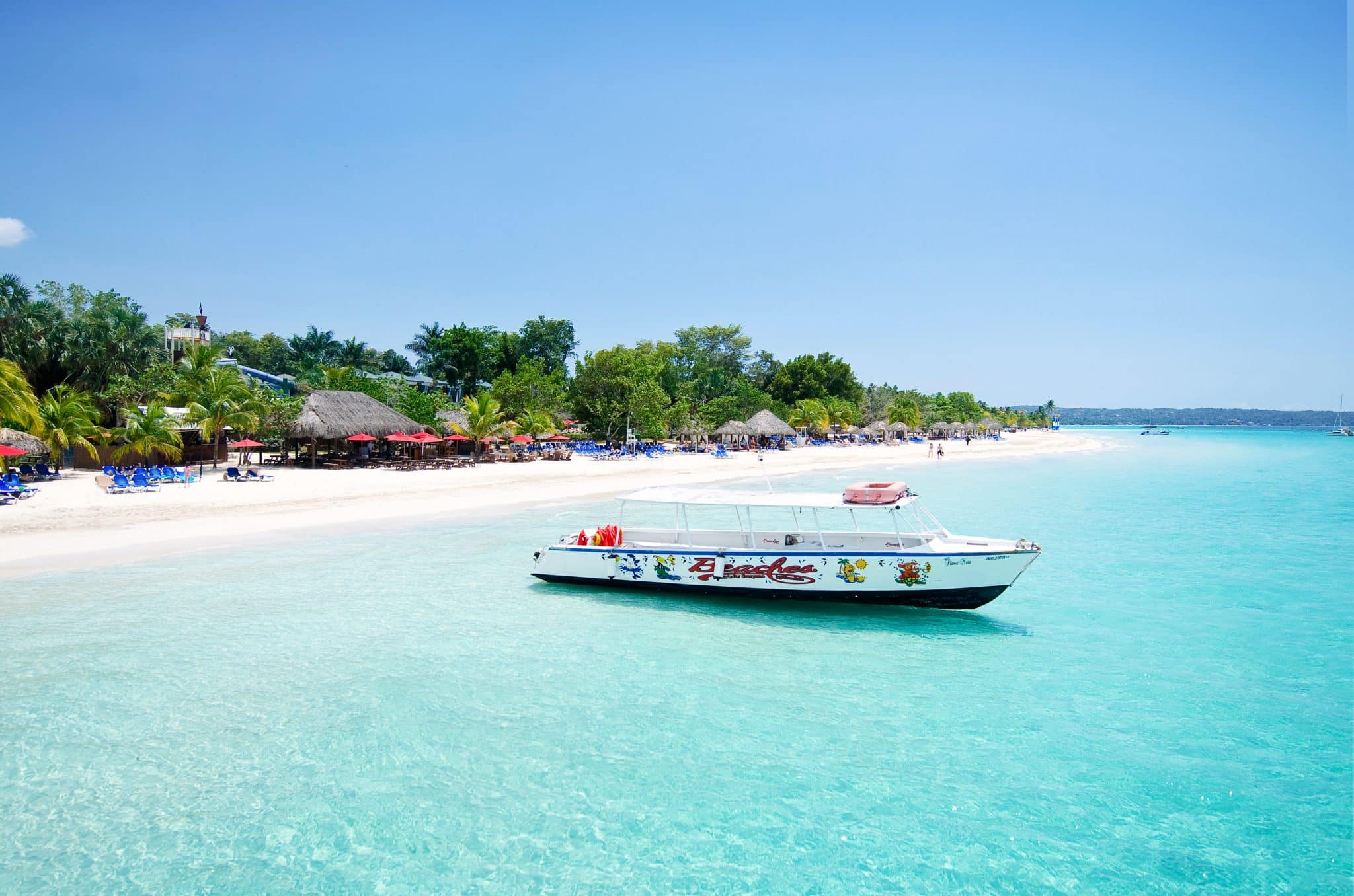
“Here in the Caribbean, the ocean is a part of our everyday lives, and the health of our underwater ecosystems plays a role in the livelihoods of our friends, families, and neighbors,” said Michael Clarke, Corporate Director of Watersports for Sandals Resorts International. “As new members of Green Fins across our entire resort portfolio, Sandals and Beaches are upholding their vows to protect and restore our natural resources so guests visiting from every corner of the earth can experience the crown of the Caribbean while generations to come continue to prosper from its resources.”
Through the creation and logging of action plans curated according to the Green Fins code of conduct, all levels of staff at Sandals’ and Beaches’ on-resort, PADI-certified dive shops will engage in solutions aimed at reducing environmental impact. Participation in Green Fins will expand on the resorts’ existing conservation practices, which include rotating dive site visits to manage human interaction with wildlife, invasive species management, encouraging the use of reef-safe sunscreen, and providing snorkelers and scuba divers with briefings on eco-friendly behaviors before they jump into the diverse waters of the Caribbean. Combined, these efforts drive down operational footprints on the natural world, both above and below the surface.
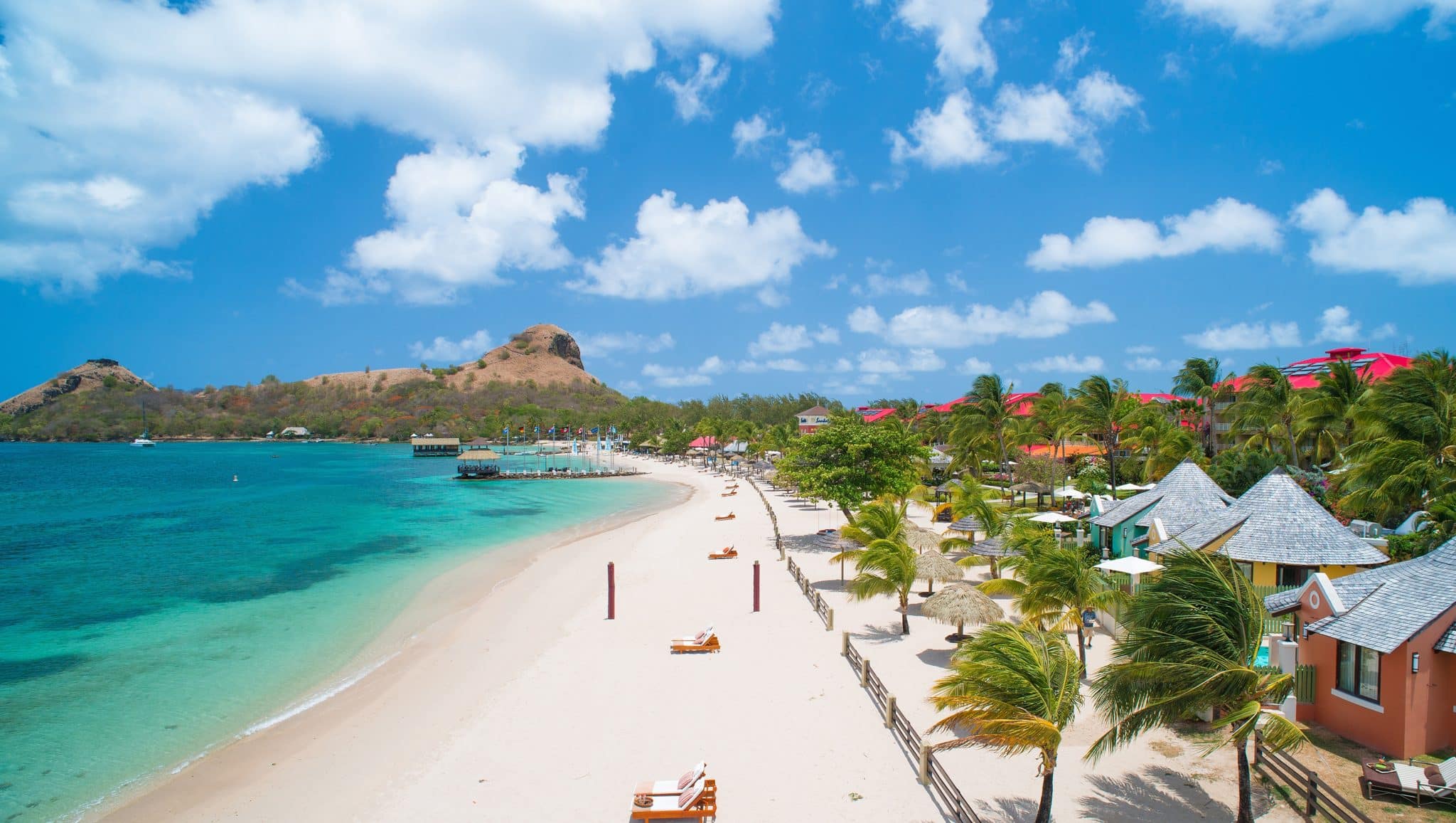
“As PADI Mission Hubs, Sandals and Beaches are incredibly important strategic partners for PADI. Their scale and shared commitment to a healthier future helps advance our mission to create more ocean ambassadors who can go out and not only explore but also protect the ocean,” said Katie Thompson, PADI Global Director, Corporate Social Responsibility and Sustainability. “We proudly continue forward on this important journey with Sandals and Beaches and celebrate them as the first PADI resort company that can boast 100% Green Fins status.”
Sandals Resorts and Beaches Resorts are also actively engaged in PADI AWARE Foundation’s Adopt the Blue Program – through which dive centers adopt a dive site from PADI’s global inventory, taking responsibility for its cleanliness via ocean clean-ups, reporting changes in its ecosystem, and presenting a willingness to take conservation action as recommended by specialists.
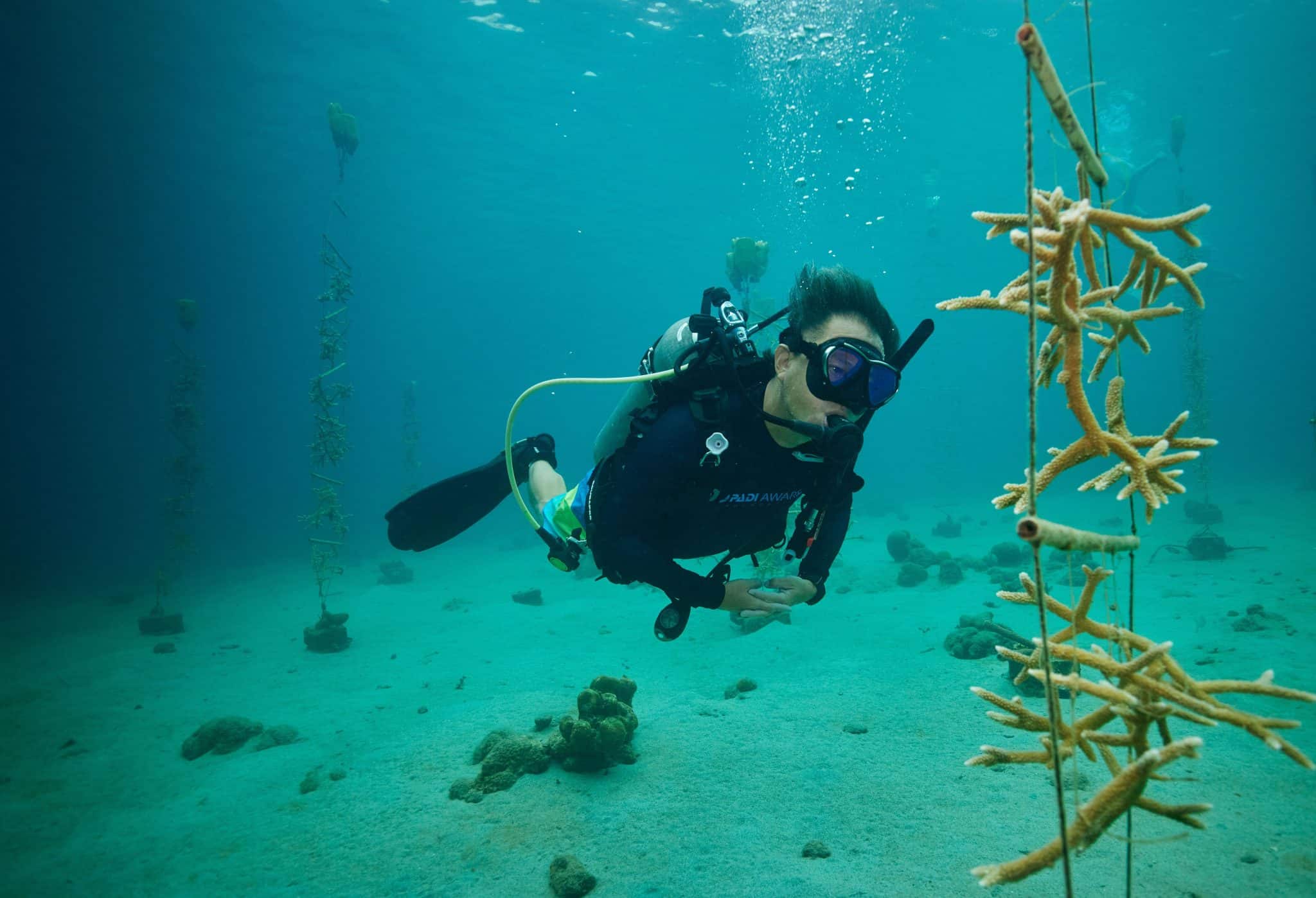
“We are thrilled to see Sandals Resorts and Beaches Resorts leading the way in sustainable tourism for resort companies, leaning on Green Fins as a benchmark for environmental standards with the organization’s unique resources and monitoring mechanism to measure performance,” JJ Harvey, Operations Director of The Reef-World Foundation. “This is an important step in their environmental commitment, and with Green Fins, they now count on the world’s only recognized eco-focused standard for scuba diving and snorkeling, as the tool to do so.”
The Caribbean’s Most Comprehensive Dive Program: Sharing the Skill and Forging Forward
A Reef-World survey of sustainability in the marine tourism industry found that over 80% of divers are seeking sustainable operators that prioritize marine life conservation when booking a trip, emphasizing not only the importance of but also the strong demand for sustainable and regenerative tourism. Dive-certified guests and snorkelers can explore the Caribbean’s colorful coral reefs as part of the all-inclusive experience across all Sandals’ and Beaches’ PADI-certified dive centers. For new divers, certifications can be administered on-resort, with over 140,000 PADI certifications fulfilled to date – the largest number of certifications completed by any PADI partner. These certifications have played an integral role in building the PADI Ocean Torchbearer army, a movement of united ocean conservationists, along with sustainable on-resort hands-on experiences in the form of courses and dives, including PADI coral restoration and PADI invasive lionfish management.
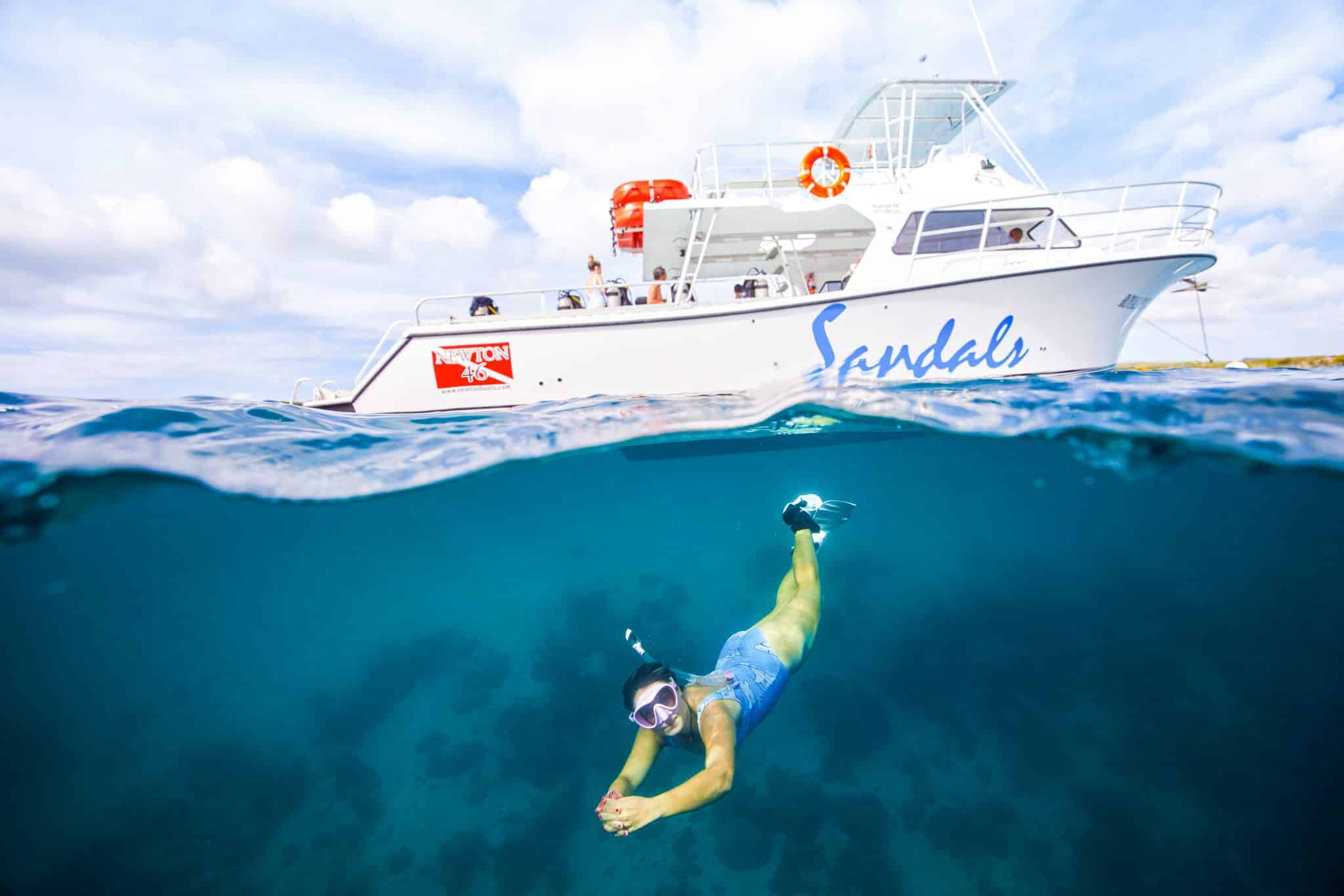
Paying it Forward with ‘The Gift of Blue’
Ever-creating opportunities for Caribbean travelers to be a part of the ocean conservation movement, this year, Sandals Resorts and Beaches Resorts are dedicating its holiday sale to the oceans it calls home – turning Black Friday “blue” with the ‘Gift of Blue’ sale. In addition to an air credit valued at up to $750 and a resort credit of up to $250, Sandals and Beaches will donate $50 to the Sandals Foundation’s ocean conservation efforts – more specifically, the expansion of coral nurseries throughout the Caribbean, which houses 10% of the world’s underwater ecosystems – for every booking made between Thanksgiving and Giving Tuesday.
To book your next vacation and donate to the Sandals Foundation’s ocean conservation efforts through the “Gift of Blue” sale, please visit: www.sandals.com/gift-of-blue-sale and www.beaches.com/gift-of-blue-sale.
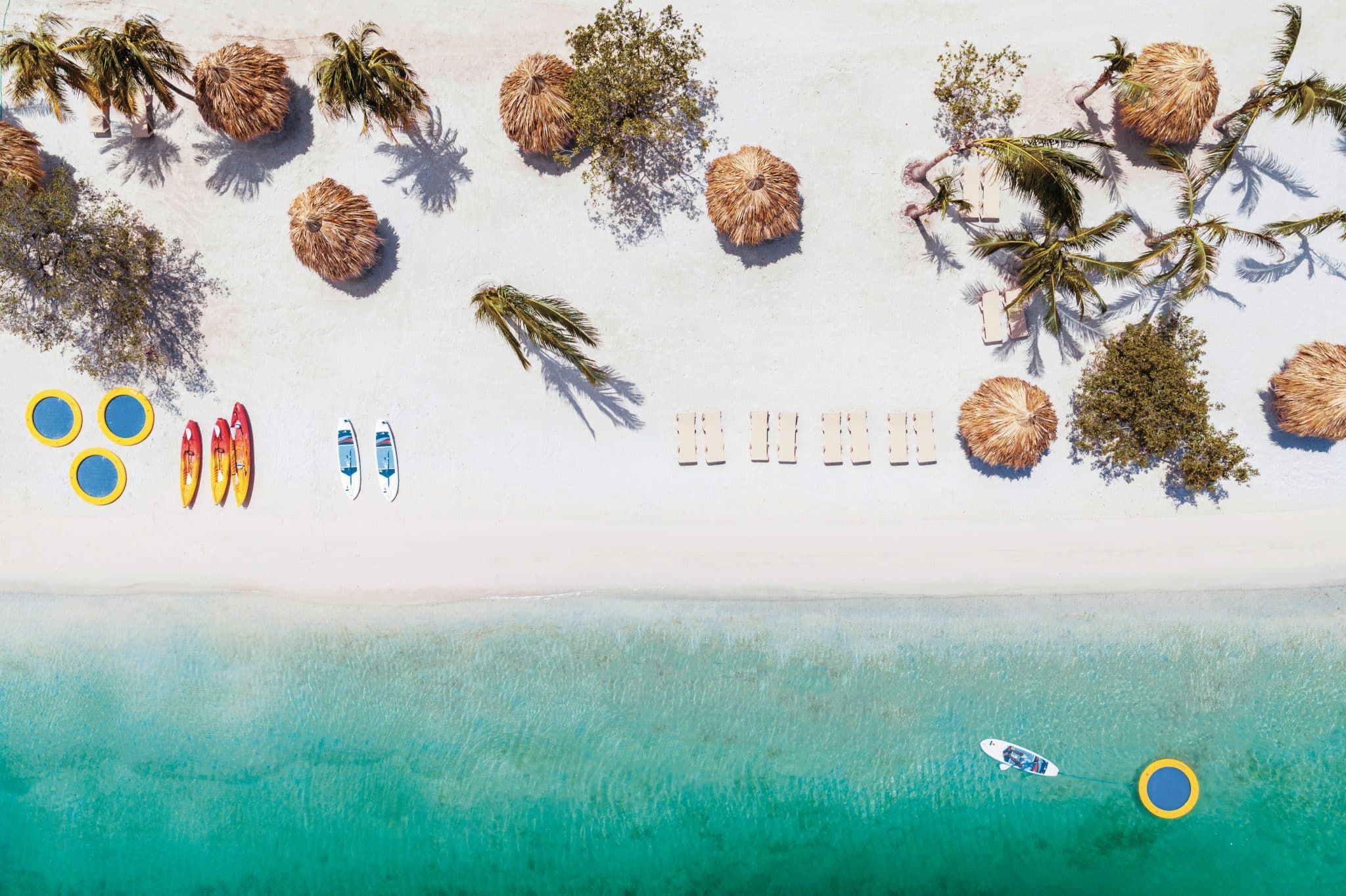
About Sandals Resorts
Sandals® Resorts offers two people in love the ease and refinement of the most-awarded luxury all-inclusive vacation experience in the Caribbean. With 18 beachfront settings in Jamaica, Antigua, Saint Lucia, The Bahamas, Barbados, Grenada, Curaçao, and Saint Vincent and The Grenadines, each resort reflects the design, cuisine, and unique essence of its island home. From butler service and gourmet dining to top-shelf liquor and luxurious suites, including the Caribbean’s first Overwater Villas, Sandals Resorts creates the time and moments necessary for couples to reconnect and focus on what matters most: each other. Notorious for pioneering innovations that constantly evolve and elevate the all-inclusive vacation experience, Sandals Resorts has recently introduced fresh concepts such as the brand’s first-ever double infinity pool and an off-site Island Inclusive dining program, while staying true to its Caribbean roots and showcasing the transformative link between tourism and its power to transform lives through its philanthropic arm, the Sandals Foundation. Sandals Resorts is part of family-owned Sandals Resorts International (SRI) which includes family-friendly Beaches Resorts, and is the Caribbean’s leading all-inclusive resort company. For more information about the Sandals Resorts Luxury Included® difference, visit www.sandals.com.
About Beaches Resorts
Beaches® Resorts is the Caribbean’s most-awarded luxury family all-inclusive vacation experience, where memories are created and made to last. With three spectacular locations in Turks & Caicos and Jamaica, Beaches Resorts is the ultimate beachfront getaway for every member of the family. Kids can hang with the Sesame Street gang as part of the Caribbean Adventures with Sesame Street®, splash in outrageous waterparks and enjoy the XBOX® Play Lounges, exclusive Kids Camps and teen nightclubs, while parents indulge in butler service, luxurious spa treatments, gourmet restaurants and all with the assurance of Certified Nannies and expertly trained team members. Beaches Resorts is part of family-owned Sandals Resorts International (SRI), which includes Luxury Included® Sandals Resorts, and is the Caribbean’s leading all-inclusive resort company. For more information about Beaches Resorts, visit www.beaches.com.
About PADI ®
PADI® (Professional Association of Diving Instructors®) is the largest purpose-driven diving organization with a global network of 6,600 dive centers and resorts, 128,000 professional members and more than 29 million certified divers to date. Committed to our blue planet, PADI makes the wonder of the underwater world accessible to all, empowering people around the world to experience, explore and take meaningful action, as Ocean TorchbearersTM, to protect the world beneath the surface. For over 50 years, PADI is undeniably The Way the World Learns to Dive®, setting the standard for the highest quality dive training, underwater safety and conservation initiatives while evolving the sport of diving into a passionate lifestyle. For divers by divers, PADI is obsessed with transforming lives and, with its global foundation, PADI AWARETM, creating positive ocean change. Seek Adventure. Save the Ocean.SM www.padi.com
About The Reef-World Foundation
The Reef-World Foundation is a registered UK charity which delivers practical solutions for marine conservation around the world. The charity promotes the wise use of natural resources – particularly coral reefs and related ecosystems – for the benefit of local communities, visitors and future generations. It is dedicated to supporting, inspiring and empowering governments, businesses, communities and individuals around the world to act in conserving and sustainably developing coastal resources.
Reef-World leads the global implementation of the UN Environment Programme’s Green Fins initiative, which focuses on driving environmentally friendly scuba diving and snorkeling practices across the industry globally. As such, the charity provides low-cost and practical solutions to local and industry-wide environmental challenges associated with the marine tourism industry. It provides education and capacity-building assistance to empower environmental champions (within the diving industry, local communities, authorities and governments) to implement proven coastal resource management approaches.
For more information, visit www.reef-world.org or follow Reef-World on Facebook, Instagram and Twitter.
Blogs
Invitation from The Ocean Cleanup for San Francisco port call

6 years ago, The Ocean Cleanup set sail for the Great Pacific Garbage Patch with one goal: to develop the technology to be able to relegate the patch to the history books. On 6 September 2024, The Ocean Cleanup fleet returns to San Francisco bringing with it System 03 to announce the next phase of the cleanup of the Great Pacific Garbage Patch and to offer you a chance to view our cleanup system up-close and personal.
We look forward to seeing you there.
To confirm your presence, please RSVP to press@theoceancleanup.com
PROGRAM
Join The Ocean Cleanup as our two iconic ships and the extraction System 03 return to San Francisco, 6 years and over 100 extractions after we set sail, to create and validate the technology needed to rid the oceans of plastic.
Our founder and CEO, Boyan Slat, will announce the next steps for the cleanup of the Great Pacific Garbage Patch. Giving you a chance to view our cleanup system and the plastic extracted.
Hear important news on what’s next in the mission of The Ocean Cleanup as it seeks to make its mission of ridding the world’s oceans of plastic an achievable and realistic goal.
Interviews and vessel tours are available on request.
PRACTICALITIES
Date: September 6, 2024
Press conference: 12 pm (noon)
Location: The Exploratorium (Google Maps)
Pier 15 (Embarcadero at Green Street), San Francisco, CA
Parking: Visit The Exploratorium’s website for details.
RSVP: press@theoceancleanup.com
Video & photo material from several viewing spots around the bay
We look forward to seeing you there!
ABOUT THE OCEAN CLEANUP
The Ocean Cleanup is an international non-profit that develops and scales technologies to rid the world’s oceans of plastic. They aim to achieve this goal through a dual strategy: intercepting in rivers to stop the flow and cleaning up what has already accumulated in the ocean. For the latter, The Ocean Cleanup develops and deploys large-scale systems to efficiently concentrate the plastic for periodic removal. This plastic is tracked and traced to certify claims of origin when recycling it into new products. To curb the tide via rivers, The Ocean Cleanup has developed Interceptor™ Solutions to halt and extract riverine plastic before it reaches the ocean. As of June 2024, the non-profit has collected over 12 million kilograms (26.4 million pounds) of plastic from aquatic ecosystems around the world. Founded in 2013 by Boyan Slat, The Ocean Cleanup now employs a broadly multi-disciplined team of approximately 140. The foundation is headquartered in Rotterdam, the Netherlands, and opened its first regional office in Kuala Lumpur, Malaysia, in 2023.
Find out more about The Ocean Cleanup at www.theoceancleanup.com.
Marine Life & Conservation
SHARK MONTH ARRIVES AT ROYAL WILLIAM YARD, PLYMOUTH

A shark has been spotted approaching Royal William Yard in Plymouth, much to the surprise of swimmers, paddleboarders and onlookers.
With its distinctive dorsal fin cutting through the water, the sizeable shark swam along the coastline, before turning to head inland towards Firestone Arch at Royal William Yard. The appearance drew a crowd, who were captivated for more than an hour by the unusual sight – and it was all caught on video.
The shark is one of many expected sightings at Royal William Yard over the coming weeks… because today marks the start of Shark Month!
In reality, the ‘shark’ spotted along the Plymouth shoreline was actually a custom-made model, created by the team at Royal William Yard and sailed underwater by Caroline Robertson‑Brown from the Shark Trust, who donned scuba diving gear for the occasion.
The stunt took place to launch Shark Month in style and draw attention to the work of the leading international conservation charity, which is based in Britain’s Ocean City. Spectators were reassured that the water was safe and many entered into the spirit of the performance, swimming or sailing alongside the shark.
Shark Month will take place across Royal William Yard throughout July and will feature an extravaganza of art, entertainment and advocacy for everyone to enjoy. The packed programme of events starts with an art exhibition and ends with a trip on paddleboards with shark experts – with everything from a shark quiz to a Jaws screening in between.
Paul Cox, CEO of the Shark Trust, said: “There are often assumptions and misconceptions when it comes to sharks. This was certainly the case with the shark spotted at Royal William Yard! While the British coastline is home to many species of shark, this was not one of them. However, we’re thrilled it caught people’s attention, because seeing a shark is a special and memorable moment. That is precisely why we want to celebrate these incredible creatures, highlight the need for conservation, and ask for help to safeguard their future.”
For more information about Shark Month at Royal William Yard, visit the Shark Trust Website.
Images and video: Jay Stone
-

 Blogs2 months ago
Blogs2 months agoDiving With… Nico, Ocean Earth Travels, Indonesia
-

 News1 month ago
News1 month agoMurex Bangka Announce New Oceanfront Cottages & Beachfront Dining
-

 Blogs2 months ago
Blogs2 months agoA new idea in freediving from RAID
-

 Marine Life & Conservation1 month ago
Marine Life & Conservation1 month agoIceland issue millionaire whale hunter a licence to murder 128 vulnerable fin whales
-

 Marine Life & Conservation2 months ago
Marine Life & Conservation2 months agoThe Shark Trust Great Shark Snapshot is back
-

 News3 months ago
News3 months agoCharting New Waters; NovoScuba Goes Global with the Launch of their Revolutionary Dive Training Agency!
-

 Gear News1 month ago
Gear News1 month agoNew Suunto Ocean – a dive computer and GPS sports watch in one for adventures below and above the surface
-

 Marine Life & Conservation Blogs2 months ago
Marine Life & Conservation Blogs2 months agoBook Review: Plankton
















